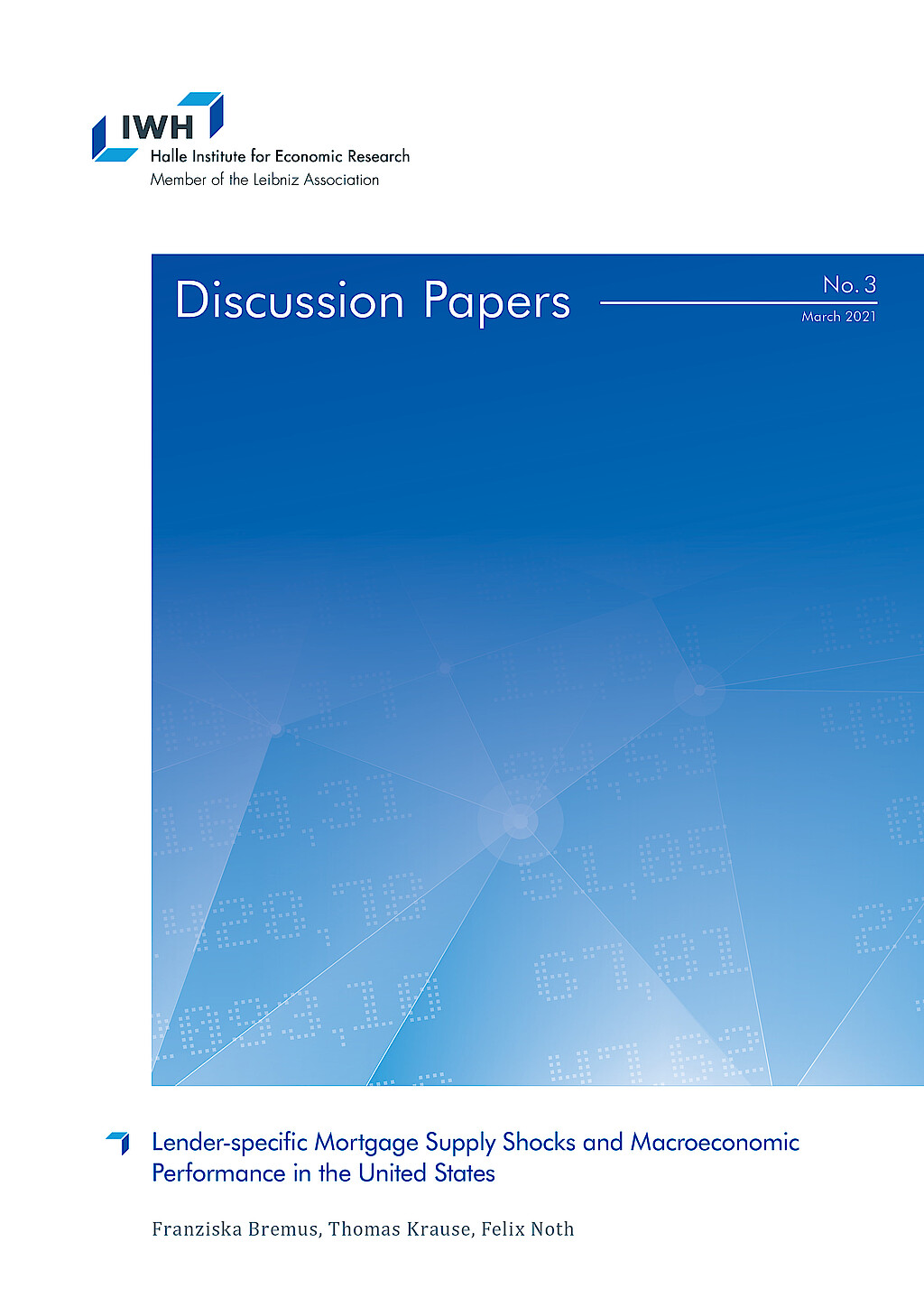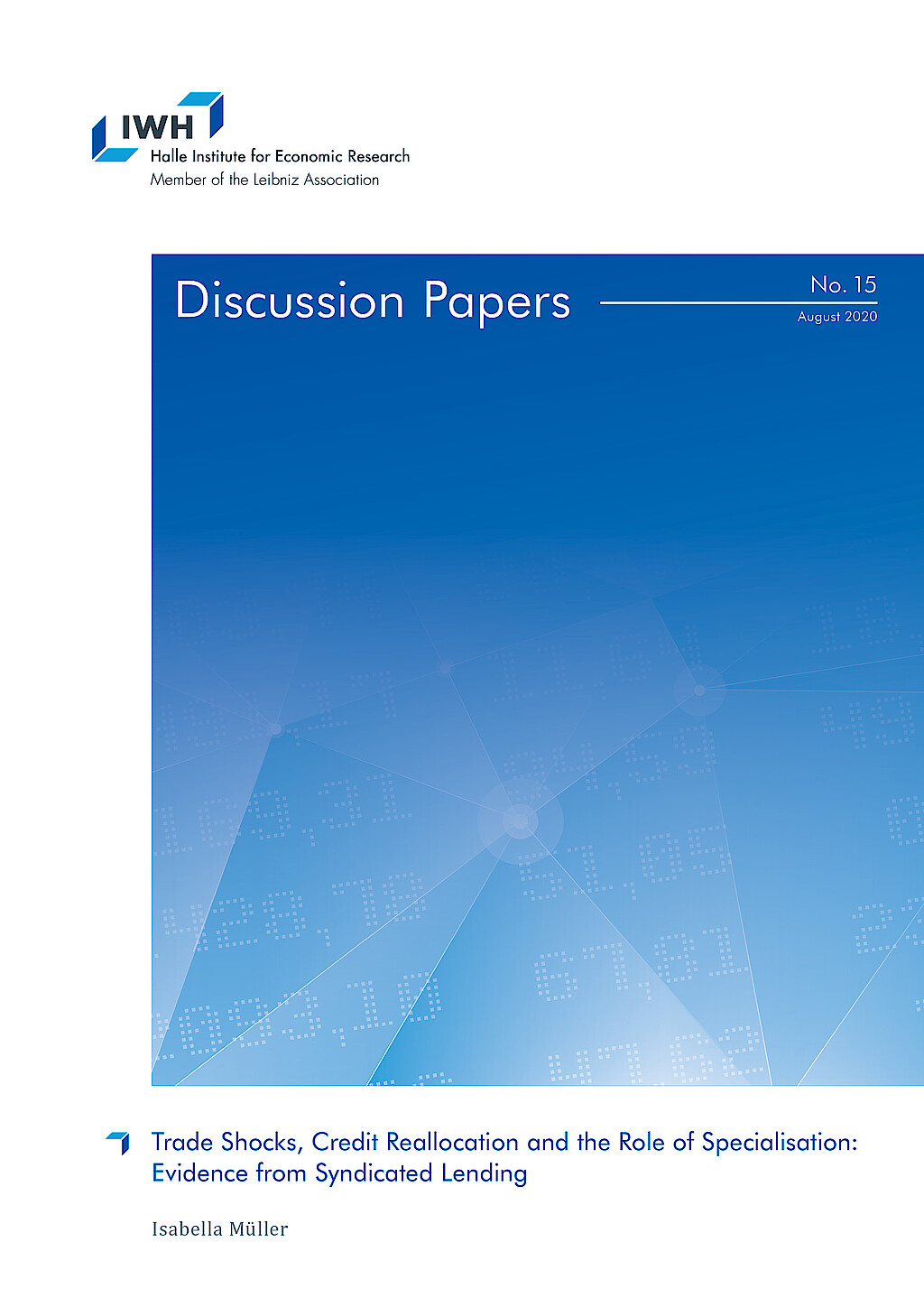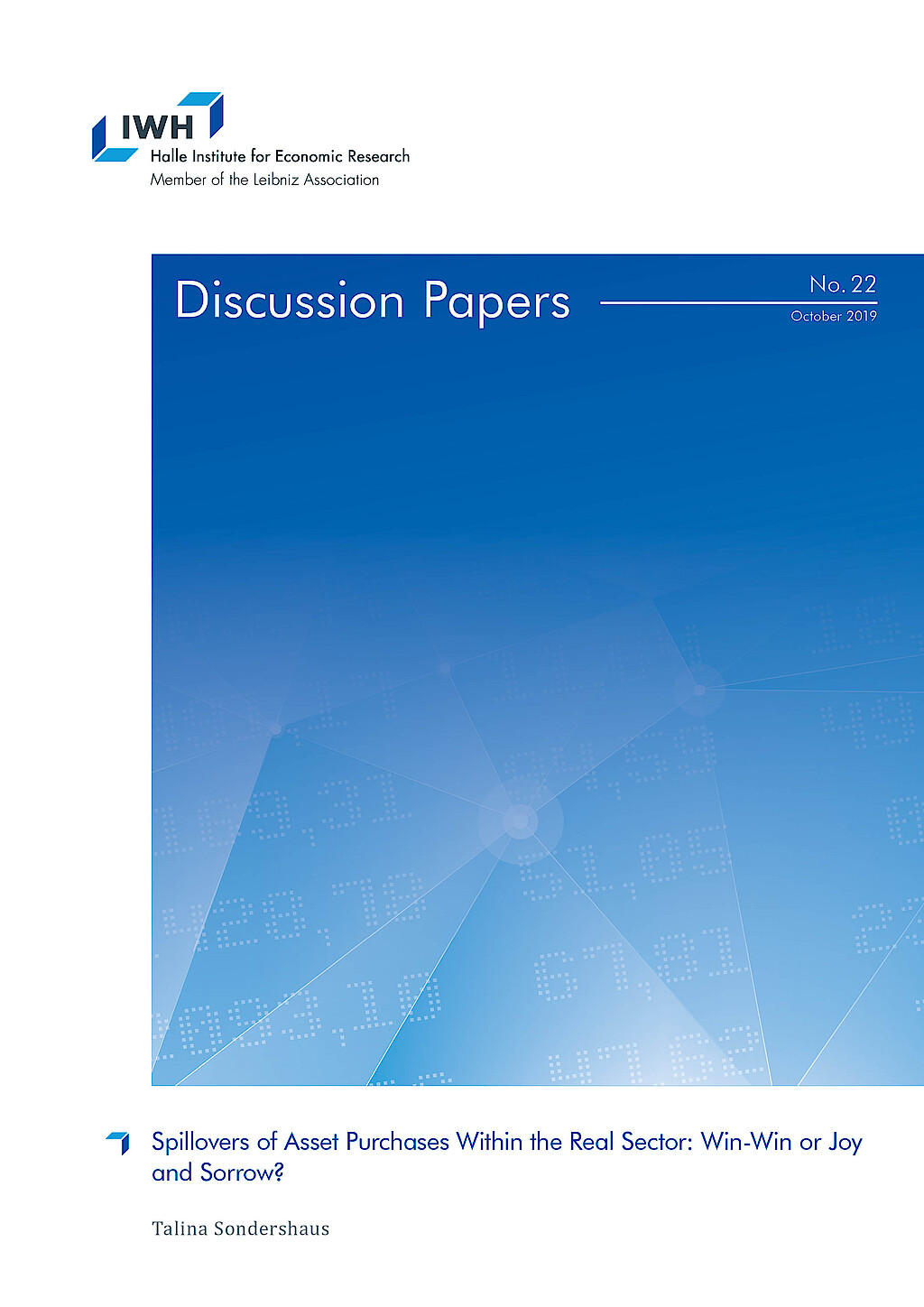Anpassungsfähigkeit und Resilienz des Finanzsystems
Diese Forschungsgruppe untersucht kritische Aspekte der Anpassungsfähigkeit und Widerstandsfähigkeit von Finanzsystemen. Sie analysiert die Auswirkungen von Naturkatastrophen auf Finanzsysteme, die Auswirkungen politischer Präferenzen für die grüne Transformation und die Bedeutung von Kultur in den Volkswirtschaften.
Forschungscluster
Finanzresilienz und RegulierungIhr Kontakt

- Abteilung Finanzmärkte
PROJEKTE
08.2022 ‐ 07.2025
OVERHANG: Schuldenüberhang und grüne Investitionen – die Rolle von Banken für den klimafreundlichen Umgang mit emissionsintensiven Anlagenvermögen
Bundesministerium für Bildung und Forschung (BMBF)
Ziel von OVERHANG ist es, die Rolle von Banken für den klimafreundlichen Umgang mit emissionsintensiven Anlagevermögen zu untersuchen. Hierdurch sollen politikrelevante Erkenntnisse zu Finanzregulierung, staatlich kontrollierter Kreditvergabe und Finanzstabilität identifiziert sowie eine Sensibilisierung der verschuldeten Akteurinnen und Akteuren erreicht werden.
Das Projekt wird vom Bundesministerium für Bildung und Forschung (BMBF) finanziert.
01.2015 ‐ 12.2019
Interactions between Bank-specific Risk and Macroeconomic Performance
Deutsche Forschungsgemeinschaft (DFG)
07.2016 ‐ 12.2018
Relationship Lenders and Unorthodox Monetary Policy: Investment, Employment, and Resource Reallocation Effects
Leibniz-Gemeinschaft
We combine a number of unique and proprietary data sources to measure the impact of relationship lenders and unconventional monetary policy during and after the European sovereign debt crisis on the real economy. Establishing systematic links between different research data centers (Forschungsdatenzentren, FDZ) and central banks with detailed micro-level information on both financial and real activity is the stand-alone proposition of our proposal. The main objective is to permit the identification of causal effects, or their absence, regarding which policies were conducive to mitigate financial shocks and stimulate real economic activities, such as employment, investment, or the closure of plants.
Referierte Publikationen

Bank Relationships and Firm Profitability
in: Financial Management, Nr. 1, 2001
Abstract
This paper examines how bank relationships affect firm performance. An empirical implication of recent theoretical models is that firms maintaining multiple bank relationships are less profitable than their single-bank peers. We investigate this empirical implication using a data set containing virtually all Norwegian publicly listed firms for the period 1979-1995. We find that profitability is substantially higher if firms maintain only a single bank relationship. We also find that firms replacing a single bank relationship are on average smaller and younger than firms not replacing a single bank relationship.

Price Competition between an Expert and a Non-Expert
in: International Journal of Industrial Organization, Nr. 6, 2000
Abstract
This paper characterizes price competition between an expert and a non-expert. In contrast with the expert, the non-expert's repair technology is not always successful. Consumers visit the expert after experiencing an unsuccessful match at the non-expert. This re-entry affects the behavior of both sellers. For low enough probability of successful repair at the non-expert, all consumers first visit the non-expert, and a 'timid-pricing' equilibrium results. If the non-expert's repair technology performs well enough, it pays for some consumers to disregard the non-expert a visit. They directly go to the expert's shop, and an 'aggressive-pricing' equilibrium pops up. For intermediate values of the non-expert's successful repair a 'mixed-pricing' equilibrium emerges where the expert randomizes over the monopoly price and some lower price.

The Total Cost of Trading Belgian Shares: Brussels versus London
in: Journal of Banking and Finance, Nr. 9, 1999
Abstract
Since 1990, London’s SEAQ International (SEAQ-I) has attracted considerable trading volume in Belgian equities. This paper investigates competition between the Brussels CATS market and London’s SEAQ-I. Toward this end, we gathered extensive limit order book data as well as transactions and quotation information. With regard to liquidity (indirect costs), measured by the quoted and effective bid–ask spread, the paper concludes that CATS outperforms SEAQ International for both measures. The effective spread is of course substantially smaller than the quoted spread, with the CATS effective spread showing a U-shaped form. This paper, unique in employing an extensive data set that includes all hidden orders and the whole limit order book, produces results in line with the different market microstructure models. Total trading costs on CATS are lower (higher) for small (large) trade sizes.

On the Interaction between Vertical and Horizontal Product Differentiation: An Application to Banking
in: Journal of Industrial Economics, Nr. 2, 1996
Publikation lesen
Phonebanking
in: European Economic Review, Nr. 2, 1995
Abstract
In a two-stage game, we study under what conditions banks offer phonebanking (first stage). In the second stage, they are competitors in the market for deposits. Offering the phone option creates two opposing effects. The first is a demand effect as depositors strictly prefer to manage some of their financial transactions by phone. The second (strategic) effect is that competition is increased as transaction costs are lowered. Universal phonebanking prevails when the demand effect dominates the strategic effect. Specialization can occur in that one bank offers the phone option while the other does not.
Arbeitspapiere

Capital Requirements, Market Structure, and Heterogeneous Banks
in: IWH Discussion Papers, Nr. 15, 2022
Abstract
Bank regulators interfere with the efficient allocation of resources for the sake of financial stability. Based on this trade-off, I compare how different capital requirements affect default probabilities and the allocation of market shares across heterogeneous banks. In the model, banks‘ productivity determines their optimal strategy in oligopolistic markets. Higher productivity gives banks higher profit margins that lower their default risk. Hence, capital requirements indirectly aiming at high-productivity banks are less effective. They also bear a distortionary cost: Because incumbents increase interest rates, new entrants with low productivity are attracted and thus average productivity in the banking market decreases.

Covered Bonds and Bank Portfolio Rebalancing
in: Norges Bank Working Papers, Nr. 6, 2021
Abstract
We use administrative and supervisory data at the bank and loan level to investigate the impact of the introduction of covered bonds on the composition of bank balance sheets and bank risk. Covered bonds, despite being collateralized by mortgages, lead to a shift in bank lending from mortgages to corporate loans. Young and low-rated firms in particular receive more credit, suggesting that overall credit risk increases. At the same time, we find that total balance sheet liquidity increases. We identify the channel in a theoretical model and provide empirical evidence: Banks with low initial liquidity and banks with sufficiently high risk-adjusted return on firm lending drive the results.

Lender-specific Mortgage Supply Shocks and Macroeconomic Performance in the United States
in: IWH Discussion Papers, Nr. 3, 2021
Abstract
This paper provides evidence for the propagation of idiosyncratic mortgage supply shocks to the macroeconomy. Based on micro-level data from the Home Mortgage Disclosure Act for the 1990-2016 period, our results suggest that lender-specific mortgage supply shocks affect aggregate mortgage, house price, and employment dynamics at the regional level. The larger the idiosyncratic shocks to newly issued mortgages, the stronger are mortgage, house price, and employment growth. While shocks at the level of shadow banks significantly affect mortgage and house price dynamics, too, they do not matter much for employment.

Trade Shocks, Credit Reallocation and the Role of Specialisation: Evidence from Syndicated Lending
in: IWH Discussion Papers, Nr. 15, 2020
Abstract
This paper provides evidence that banks cut lending to US borrowers as a consequence of a trade shock. This adverse reaction is stronger for banks with higher ex-ante lending to US industries hit by the trade shock. Importantly, I document large heterogeneity in banks‘ reaction depending on their sectoral specialisation. Banks shield industries in which they are specialised in and at the same time reduce the availability of credit to industries they are not specialised in. The latter is driven by low-capital banks and lending to firms that are themselves hit by the trade shock. Banks‘ adjustments have adverse real effects.

Spillovers of Asset Purchases Within the Real Sector: Win-Win or Joy and Sorrow?
in: IWH Discussion Papers, Nr. 22, 2019
Abstract
Events which have an adverse or positive effect on some firms can disseminate through the economy to firms which are not directly affected. By exploiting the first large sovereign bond purchase programme of the ECB, this paper investigates whether more lending to some firms spill over to firms in the surroundings of direct beneficiaries. Firms operating in the same industry and region invest less and reduce employment. The paper shows the importance to consider spillover effects when assessing unconventional monetary policies: Differences between treatment and control groups can be entirely attributed to negative effects on the control group.



















